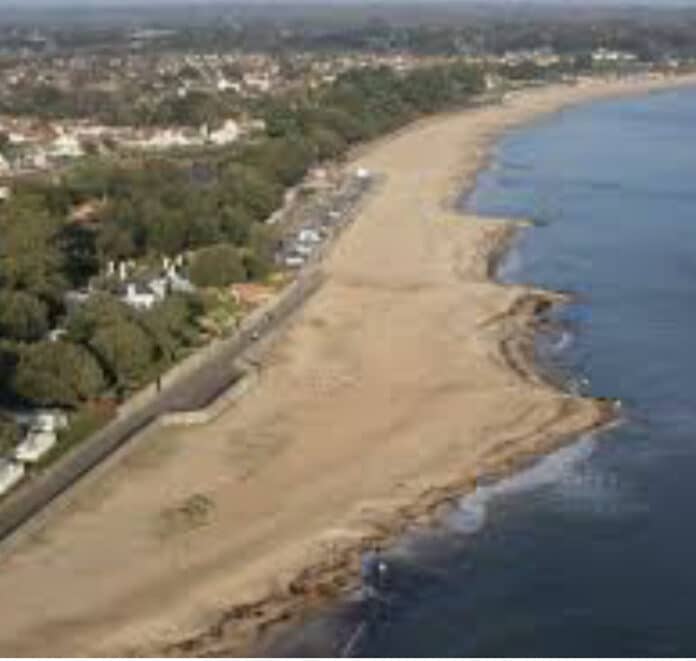A new strategy is being produced to guide the long-term sustainable tidal flood and coastal erosion risk management for Christchurch Bay and Harbour; from the east of Hengistbury Head to Chewton Bunny.
In September, BCP Council’s cabinet agreed the submission of a business case to the Environment Agency to apply for government Flood Defence Grant in Aid (FDGiA) funding of £450,000 to produce the strategy. It will be led by the Council’s Flood and Coastal Erosion Risk Management service, supported by specialist consultants.
This strategy will cover the next 100-year period, taking into account the effects of climate change, such as sea level rise and increased storminess. The work will ultimately lead to an adopted strategy, approved by the Environment Agency, against which business cases for scheme delivery can be developed. These future schemes will help lessen the risk of flooding or erosion to residents and businesses in the Christchurch Bay and harbour areas.
Councillor Mark Anderson, Portfolio Holder for Environment, Cleansing and Waste at BCP Council commented:
“As work progresses with the Poole Bay Beach Management Scheme – the timber groyne renewals and sand renourishments, it’s vital we also deliver an approved strategy for the Christchurch coastline. It will provide the foundation to enable us to make bids for government funding to carry out similar works including harbour defences, to address flood risk as a result of sea level rise.
“As our Christchurch frontages do not yet have a strategy in place, there has been no historic investment from central government. Regular beach recycling exercises have primarily been funded from council budgets. However, in the longer term we aim to ensure that any capital coastal defence works will be assessed for funding via FDGiA but will continue to use council funds in the interim.”
BCP Council has already appointed contractors to undertake beach recycling on Mudeford Sandbank (as far as Hengistbury Head Long Groyne) and Avon Beach to Highcliffe in Spring 2021. This will involve the re-distribution of up to 20,000 tonnes of beach material which has accumulated offshore in the ebb-tidal delta and nearshore bars by the harbour entrance, and within the groyne bays at Highcliffe. At low tide, the sand and coarser beach material will be excavated into dumper trucks and brought back onshore to be spread on the beaches by bulldozers. Works will also include repairs to the existing rock groynes; realigning rocks and fixing or replacing groyne beacon posts; and providing additional rock armour to protect Steamer Point path.
PLEASE SUPPORT US FOR JUST £2 A MONTH







